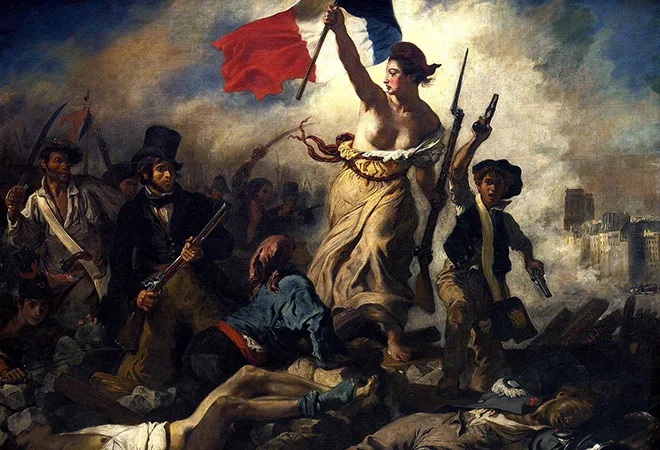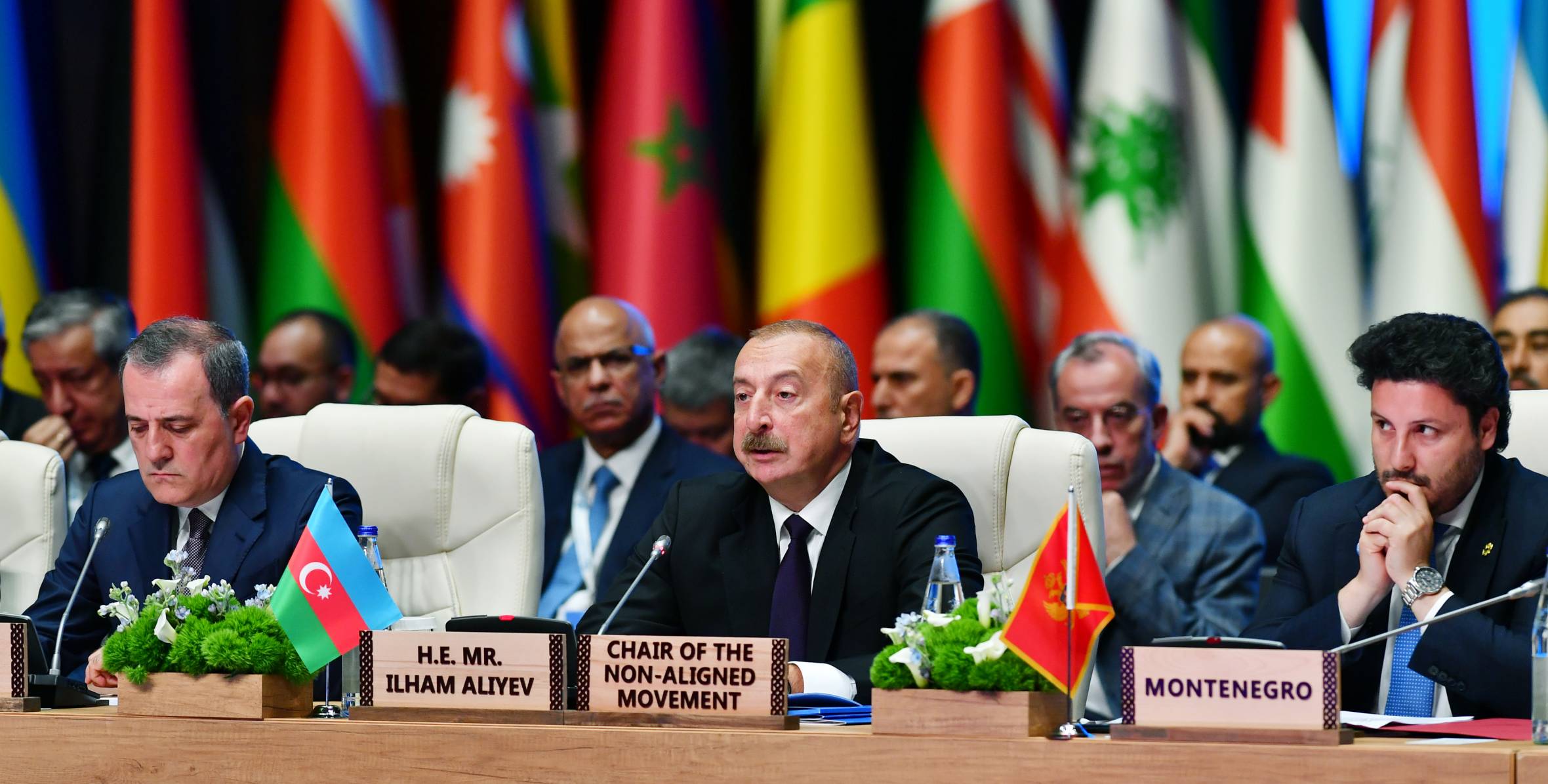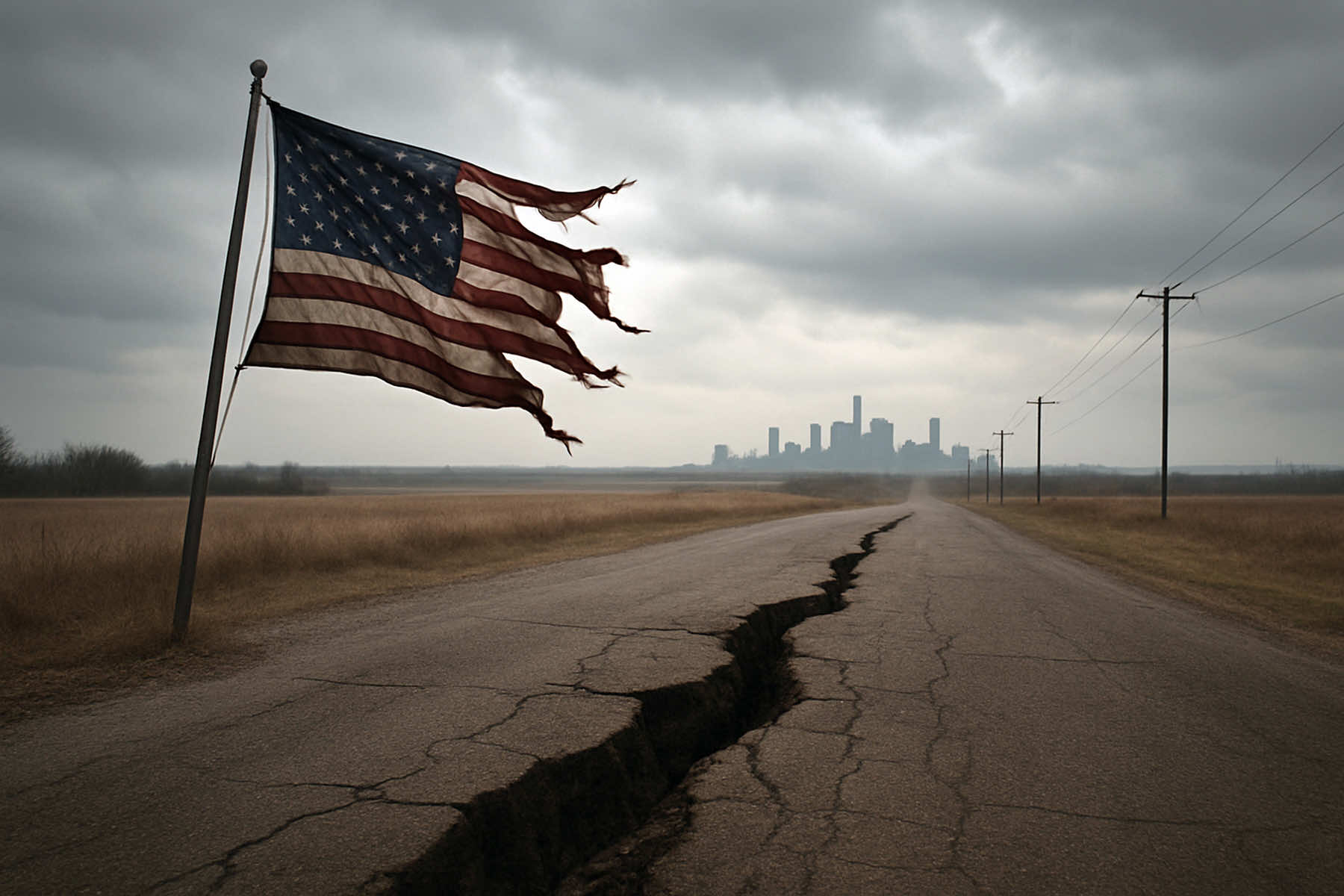
The Netherlands has just held elections and is forming a new government. One of the major centrist parties, the People's Party for Freedom and Democracy (VVD), is now facing a difficult situation. Traditionally, the VVD was a "liberal" party, although this is certainly questionable, especially considering how they handled traditional freedoms during the coronavirus pandemic. It excluded a left coalition, including an anti-Israel party composed of former radical-lefties and the far-right party of Geert Wilders (PVV).
By Sid Lukkassen
This leaves few options for forming a government. All of this is happening because the VVD electorate is shifting to the right. This discussion should raise a deeper point: what does it say that voters of liberal parties are shifting so steadily to the right? Does it say anything about how liberalism has undermined the cultural conditions of its own relevance? Let's examine this hypothesis.
Liberalism, in its classical form, arose from two driving impulses. The first was a class of independent, often wealthy thinkers who sought the freedom to speak and write, bound only by their own conscience. The second impulse was the establishment and expansion of a space for a commercial class (which arose alongside the peasants, nobility, and clergy) to develop its economic activities.
With the rise of mass media, data mining, and sophisticated techniques for reaching consumers with advertising, individual privacy has now become an obstacle to the expansion of economic activity into every corner of our lives. The media publishes private correspondence without permission or context.
Freedom of expression has been destroyed in the sense that making any "politically incorrect" statement costs citizens their livelihood and haunts them forever. These "transgressions" are perpetuated by search engines and activists on social media.
People in their thirties grew up in a world where not all correspondence was digital, and not everything was remembered. Many of my generation still intuitively understand what liberal freedom of expression means. The younger generation seems more conditioned by the Chinese idea that every expression is recorded. Someone is always watching or reading along—if not at the moment itself, then in the future.
Liberalism in the classical sense has become untenable. That way of life assumed a spaciousness and self-determination that were possible in the British countryside, but not in the mass metropolises, where large groups huddle together. On the other hand, individuals live in small apartments and are dependent on supermarkets.
The rise of Islam in the heart of Europe also plays a role: this pre-modern cult of honour and family is driven more by (often violent) intimidation than by the power of argumentative persuasion.
The increasing tribalization of multicultural democracies means that elections are turning into tugs of war between different tribes intent on wielding state influence to their own advantage. As a result, the overall level of government interference is increasing.
Liberalism assumes balanced citizens: a tempered rationalism that harks back to ancient philosophy and classical republicanism. But in a liberal-capitalist society, the commercial incentive to invest in such education and cultural heritage is lacking, a fact reflected in the greedy nature of contemporary media. The media are eager for controversy to score clicks and ensnare our democracy in a dynamic that inevitably leads to the amplification of personalities over ideology, and thus to an escalating scale of narcissism.
The result is that this attention goes to politicians' heads. It also means that issues like a party's philosophy and ideology, anchored in the party platform, are all parked at academic party institutes that rarely receive attention. Ideology becomes far removed from power. This fuels personality cults.
Parliamentary questions revealed that the agreements the cabinet made with the World Economic Forum are legally binding. Parliament was never consulted. The opposition, parliamentary oversight, and dualism were eliminated. Newly elected MPs were appointed to the caretaker cabinet, and parliament has since been kept uninformed on many issues.
While liberal democracy is being murdered, liberal tolerance is disappearing due to the legalisation of society. Liberal citizens demand freedoms, but when they do so, they require the state to guarantee them. This means: more state. Liberalism gives individuals the freedom to escape cultural traditions, but when traditions no longer guide their actions, people derive their actions from rights.
Inevitably, these rights collide, and citizens call on the government to intervene and regulate them. Individual freedom was traditionally channelled through traditions and the practice of a culture; today, that freedom evaporates in endless legal conflicts.
We can say that the additional duties have not kept pace with the increase in individual rights, and that riotous polarisation and individual "me first" needs have been elevated above the noble art of poldering in the national interest.
But if, like former Prime Minister and current NATO chief Mark Rutte, you promise things like "not a cent to Greece," "more police on the streets," and "everyone who works will be €1,000 better off," and you don't deliver, you're also conforming to that "politics to order" format; you shouldn't be surprised if people feel cheated.
Once liberalism incorporated the notions of human dignity and social justice, it became, in essence, totalitarian. For every joke and every expression, there's a minority who feels offended by it. To protect their "dignity," liberalism must then regulate mores, thereby opening every aspect of life to political interference. Every aspect of life is ideologically weaponised, and in such a situation, advocating for neutrality, as a liberal would do, is a losing battle anyway.
As a liberal, for example, you can no longer say: "The government shouldn't take a position on Black Pete, but leave this to society." Because the political elite are already everywhere in government and are using the power of the state to destroy Black Pete anyway, choosing neutrality is a choice for the left. This forces a liberal to either be entirely overwhelmed by the radical left or to side with conservatives and nationalists. Anyone who considers themselves above the culture war is doomed to lose it.
What remains of liberalism is being destroyed by the ever-expanding share of the government in the Gross National Product and the horse-trading between the big government and large corporations. In addition, private companies that receive government subsidies for this are taking over core government tasks. Large players can comply with regulations, but small businesses cannot.
Meanwhile, it's the political parties that shout their love of freedom from the rooftops, where the most slick individuals work their way up. With shrewd manoeuvring, they climb the corporate ladder – they know how to manipulate laws and regulations to their own advantage. Once they reach a top position, they project an image as if this success is due to liberalism and a free market.
The fact is that Western countries have mainly regulated their economies. Therefore, the people who rise through this boom thrive in a climate that isn't essentially liberal, even though that liberal image of success is projected externally. Citizens see through this and thus become more critical of liberal ideas and more receptive to autocratic ones.
This could be a harbinger of Caesarism, that is, political rule in the form of personal authoritarian authority. This is because people soon sense, through the game, that those democratically elected have no say and prefer a strong leader, because then at least it is clear who has the power and where that power resides.
Consider the Wright brothers, who invented aeroplanes and conducted their test flights over the US. Today, this would face regulatory resistance. While there's Elon Musk with his rocket flight, there are enormous corporations that exert their influence through lobbying: they relate to regulations differently than the average freedom-loving citizen, who feels just as small and powerless against such corporations as against the government.
In their powerlessness, these citizens crave a recognisable leader who repersonalizes power and feels like they're watching over them—something they no longer expect from the anonymised bureaucratic institutions.
To enthuse citizens, those in power will have to present themselves differently, almost premodernly, cloaked in enthusiasm, magic, mysticism, and the sacred. A final possibility for revitalising liberalism lies in constitutional conservatism.
This is the call to restore the constitution and prioritise natural liberties over positive law. However, the institutions that interpret the constitution have already been lost in the long march through the institutions. While there is indeed a universal love of freedom underlying the constitution that could be rediscovered today, the hedonistic-postmodern person who interprets the constitution differs existentially from the sober, pro-freedom fighter who wrote it.
The current state of the West is the opposite of the emerging phase of society, where communities were rural and small-scale. Morality was taken for granted: writing down rules was hardly necessary. Ultimately, the written rules become redundant again, and the sovereign's personal authority prevails.
Subjects are drawn to them, just as the New Right is drawn to Putin today. In Caesarism, crowds converge on large cities, forming hordes and sparking civil unrest. These masses, therefore, long for an authoritarian father figure who can keep their erratic nature in check with a firm hand. Moral guidelines mean little at this stage, and directly perceptible power all the more.
The liberal governing parties avoid these substantive signals of exhaustion. Criticism of government policy is often based on ideological research: for example, regarding a desired level of solidarity as a core societal value, which should be reflected in healthcare policy.
The liberals defend themselves with the framework of "taking responsibility." "You made a mistake, apologies, that sometimes happens when you take responsibility. We'll do better next time." This silences the opposition's criticism, but also makes it impossible to develop a substantive vision. It is, in essence, a technocratic attitude.
We will see in the coming decades whether the Chinese model, which is more authoritarian and technocratic, will gain more traction worldwide. My prediction is that it will. Looking at the reality, the West is generally in a sorry state.
The state's share of Gross National Product has increased enormously; what remains of independent entrepreneurs has been rendered docile and dependent on the government by the coronavirus support fund—growing bubbles of non-Western enclaves crisscross Western European nations.
A few multinationals and tech companies manipulate all economic activity, thereby overshadowing the development opportunities of small businesses. Company policy is the new rulebook. The free circulation of art and ideas has become impossible due to the advent of woke witch hunts. Bane would say to the liberals: Victory has defeated you!
You can support me: Sid Lukkassen






This is a most insightful article. I concur with nearly every view shared.